STUDENT RIGHTS & RESPONSIBILITIES
DRESS & APPEARANCE
ATTENDANCE AT SCHOOL
STANDARDS & EXPECTATIONS OF BEHAVIOR
GENERAL INTERVENTION / DISCIPLINE SEQUENCE
GUIDELINES FOR STUDENTS RECEIVING SPECIAL SERVICES
School Resources and Supports
The following resources are available at the building level to ensure your child receives the supports and services to meet their full potential academically, socially and emotionally.
Special Education Consultant
A resource and support for students, parent/guardian and staff to ensure the district’s efforts to provide Free Appropriate Public Education (FAPE) for all students who receive special education and gifted services.
School Counselor
School counselors work to maximize student success, promoting access, and equity for all students. As vital members of the school leadership team, school counselors create a school culture of success for all and work collaboratively with students, staff, and families to remove barriers to academic, social, and emotional goals, and support the development of postsecondary goals through providing direct and indirect services aligned with the American School Counselors Association (ASCA) guidelines.
School Social Workers
This team is dedicated to promoting students’ social, emotional, and academic development. They provide mental health support and serve as a critical link between the school, families, and external resources. Through their efforts, school social workers aim to create inclusive, safe, and supportive learning environments where every student has the opportunity to thrive holistically.
School Resource Officer (SRO)
A police officer employed by a law enforcement agency who works within secondary schools to support the students, faculty, and administration. Supports provided by the SRO include reducing criminal activity by recommending physical changes to the school. The SRO also provides training to students in conflict resolution and restorative justice, expands community justice initiatives for students, and addresses crime, gang, and violence issues.
School-Based Therapy
School-based therapy services are available in our schools through local agencies. Services include, but are not limited to, providing individuals, family, and group treatment services.
Dean of Students
The Dean of Students supports a safe, respectful school climate by leading behavior interventions, promoting consistent expectations, and collaborating with staff, students, and families. The Dean is highly visible, responsive, and helps implement school-wide systems like PBIS and MTSS to ensure student success.
School Psychologists
The school psychologist uses data to understand student learning and behavior needs. They help create and monitor interventions by working with teachers, families, and support teams to ensure students receive the right support to succeed in school.
Home School Visitors
Home School Visitors support regular attendance and help prevent truancy by working with students and families. They identify barriers to attendance, connect families to resources, and partner with the school to support student success.
School Nurses
The school nurse supports student health and wellness. They provide care for injuries and illnesses, manage health plans, give medications, and help ensure a safe, healthy school environment.
Standards of Conduct
Philosophy Statement: Pursuing excellence as a student and community member is achieved by creating and maintaining a responsible, respectful, and safe environment in all settings.
Model Responsibility and Integrity
- Be honest at all times.
- Be responsible for your own work and behavior.
- Develop positive relationships.
- Accept responsibility for your own actions.
- Attend school regularly and on time.
- Believe that you can and will learn; produce quality work that meets the highest classroom standards.
- Commit to remain in school with the objective of graduating on time.
Respect Self, Others, and Property
- Value diversity and respect the views and opinions of others.
- Treat all persons fairly and with dignity; seek peaceful resolutions to disagreements.
- Choose appropriate, non-offensive language to express one’s thoughts, opinions, and feelings.
- Respect the rights and privileges of students, teachers, and other District staff and volunteers.
Create a Positive, Safe, and Drug Free Learning Environment
- Conduct yourself in a safe manner that focuses on academic success while in the school environment or on school property.
- Cooperate with and assist the school staff in maintaining safety, order, and discipline.
- Obey laws and School Board Policies against possessing or concealing any substance or objects which are prohibited or which may disrupt the educational process and/or school sponsored activities.
- Conduct yourself in a safe and responsible manner to and from school with other students, with members of the community and within the community.
